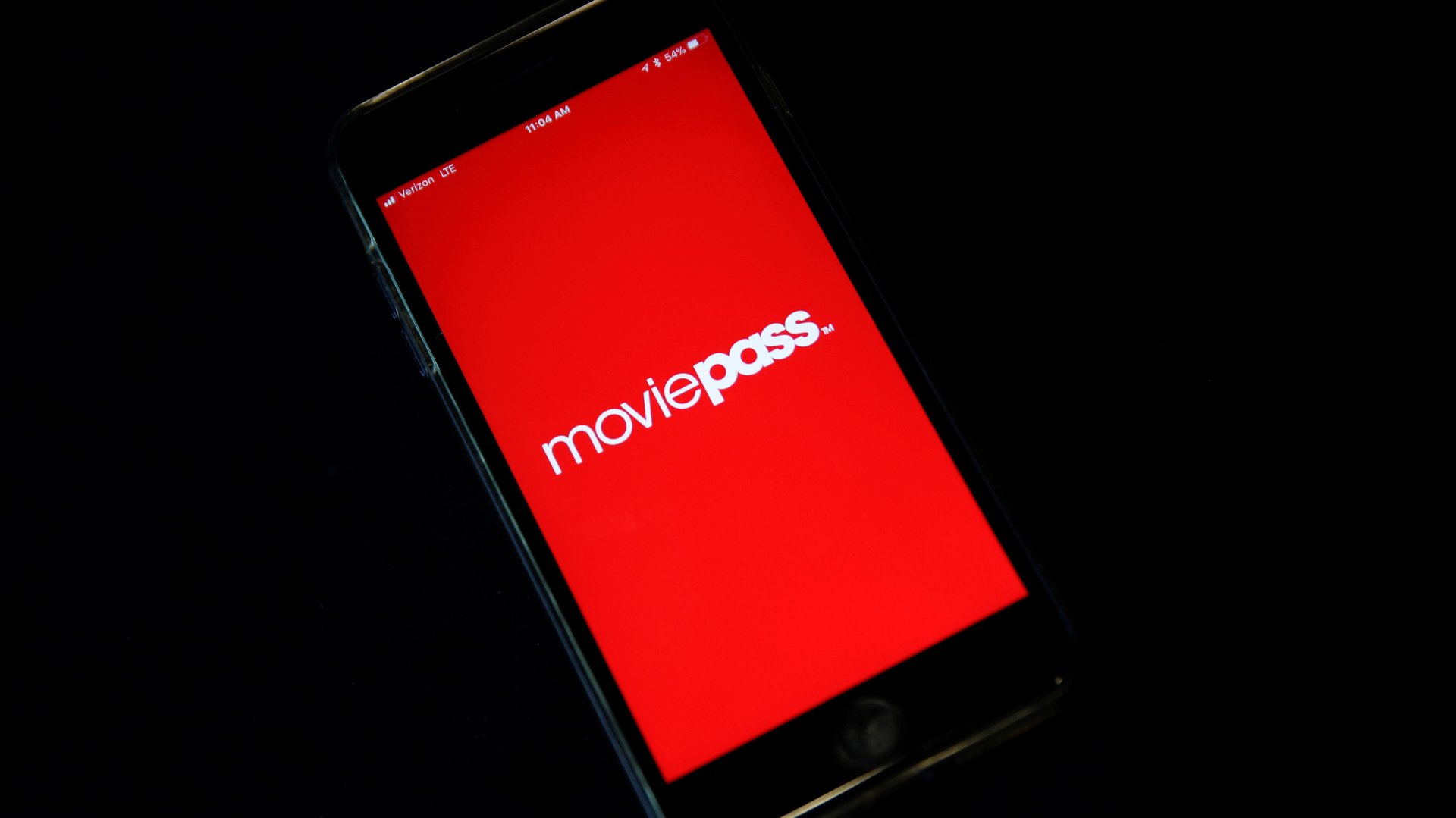MoviePass is shutting down, and probably dead
MoviePass is shutting down, and as of now, looks set to disappear altogether.


MoviePass is shutting down, and as of now, looks set to disappear altogether.
The subscription service that tried to change the way people go to the movies alerted members that it will halt operations on Sept. 14. Its parent company, Helios and Matheson Analytics, also shared the news in a press release, blaming its failed efforts to “recapitalize” the service. It will continue to seek financing, but noted that there’s no guarantee it will be able to secure any. “The Company is unable to predict if or when the MoviePass service will continue,” it said.
The decision marks an end—at least for now—to the company’s endless switching of models as it tried to find a plan that worked both for members and for the company financially, all the while burning cash. MoviePass started as a somewhat niche service for movie buffs. Even in its early days it was experimenting with a number of plans. Helios and Matheson Analytics, a consulting firm, bought a majority stake in it, seeking to make it something like like Netflix for the cinema. It tried to attract a wide audience of casual filmgoers by offering a movie ticket a day for just $9.95 a month. The deal proved too good to sustain and left the company hemorrhaging cash.
In August 2018, MoviePass changed tack, scaling back the plan to offer just three tickets per month for a limited selection of movies. In December, it shifted course again, this time launching a more appropriate tiered plan rather than trying to continue forcing a one-size-fits all approach. Along the way, they had multiple stock splits in an effort to generate more cash.
It was clear by the end of last year that MoviePass, and Helios and Matheson with it, was getting desperate. The company’s stock had plunged. Today, it trades for a fraction of a penny. Even so, shares dropped 10% on the news of MoviePass shutting down, CNBC reported.